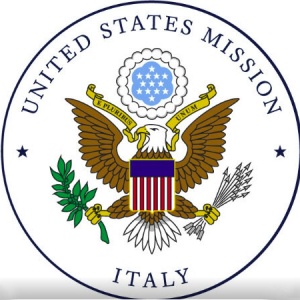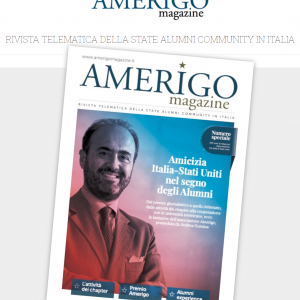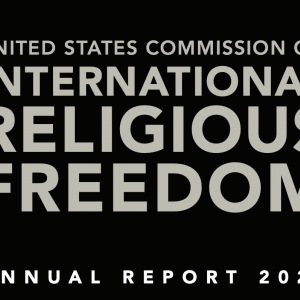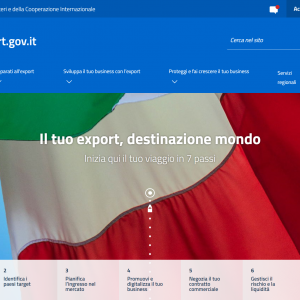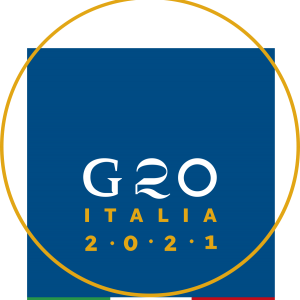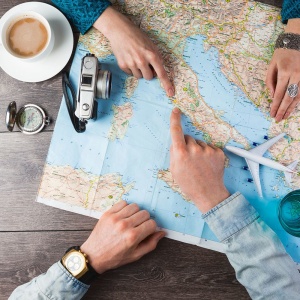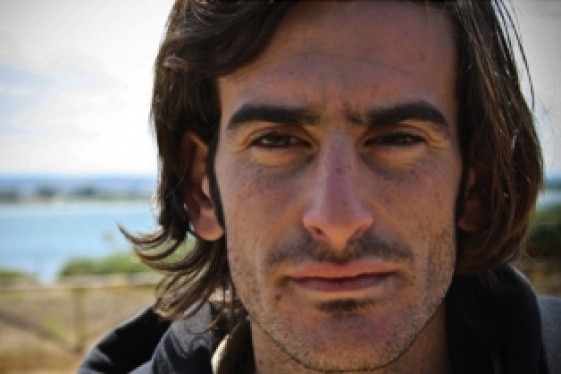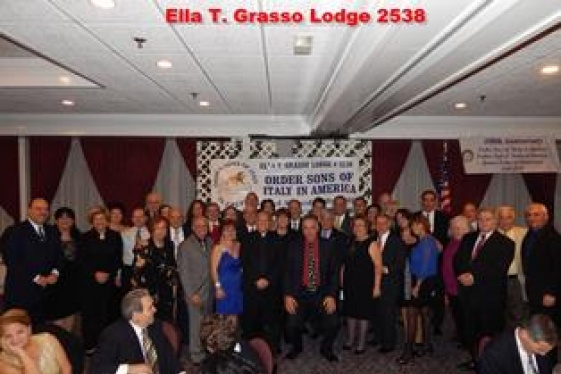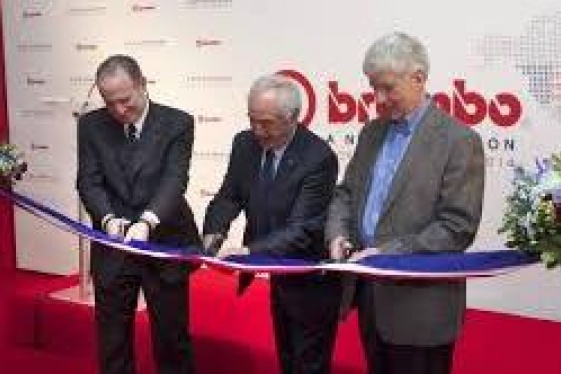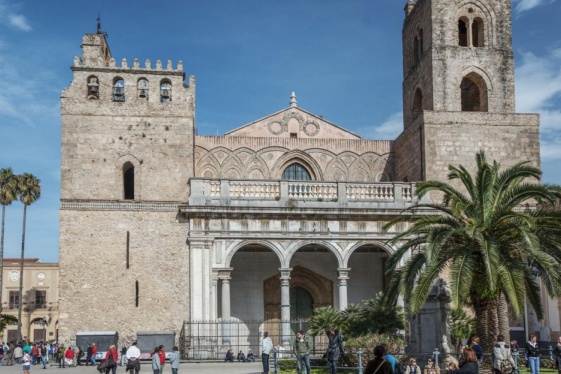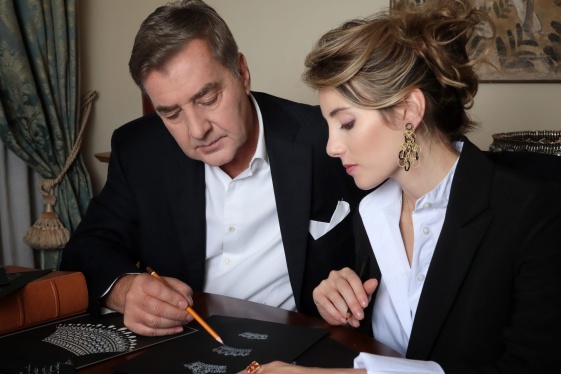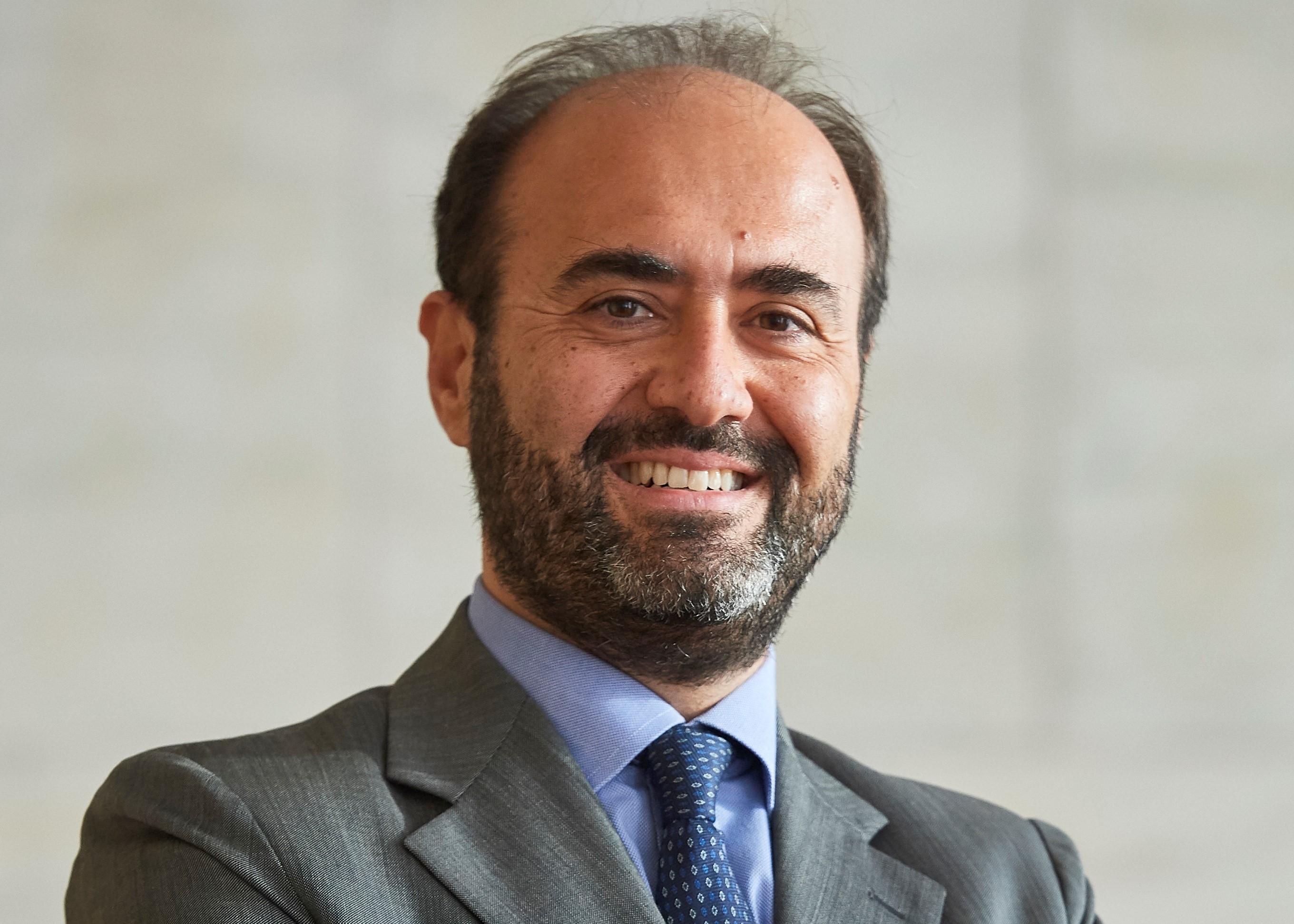
Andrea Gumina (President of Amerigo Association)
Incontriamo Andrea Gumina, presidente dell'Associazione Amerigo e vero amico degli Stati Uniti qui in Italia

The list of Italians who hold here in Italy institutional positions of collaboration with the United States is not very long. We have interviewed almost all of them over the years, and today we host one of them, who is also a close personal friend of mine.
Andrea Gumina is the President of Amerigo - Intercultural Exchange Program Alumni Association. Sicilian, an economist, he currently serves as Advisor to the Minister of Foreign Affairs for export and internationalization policies, and is Senior Policy Advisor to the Italian Government's G20 Sherpa Office. With a Ph.D. in History and Theory of Economic Development and a Master in Social Doctrine of the Catholic Church, he spent the first years of his career in academia, later giving birth to several start-ups in the field of innovation.
Dear Andrea, we have known each other more or less for twenty years, since when, as a young entrepreneur, you organized "Start-Up Meetings" with the American Embassy in Italy. I would like to start by recalling this experience, because I believe it marked an important stage in your journey with the USA
Dear Umberto, first of all let me say that it is a great honor for me to give this interview to "We The Italians", especially because our chat takes place at the same time as a series of important junctions for me, both personally and professionally. More or less like twenty years ago.
At that time in Italy, the world of start-ups was still a bit esoteric. The wonders of the "dot economy" and First Tuesday echoed in our country. In the early 2000s, while I was pursuing a PhD in History and Theory of Economic Development, I became interested in the themes of entrepreneurship, investment and technology transfer. We set up a university spin-off with some colleagues to design, among the first in Italy, ecosystems of digital services.
I remember being fascinated by two principles on which the American system is based: give-back and match-making. In those years I was a member of the Young Entrepreneurs of Confindustria, and it seemed like a good idea to try to imitate a successful initiative, the one that brought together idea holders with business angels. We organized, together with the Rome University Luiss Alumni and the Lazio Region, four meetings, streamed via satellite (at that time a live streaming on the internet was unthinkable).
The American Embassy noticed us, and there began my liaison with the United States. In fact, with today's eyes, I can only admire the foresight of the diplomatic staff and officials of the American mission in Italy. That was the beginning of a crescendo that led our "team" to work together with the American Ambassador pro tempore, Ronald Spogli, on the seeds of what would become the Italian venture capital ecosystem. It was the American Embassy that brought together several groups from different parts of Italy, first scheduling a series of meetings in Italy and then giving several of us the opportunity to have an exchange experience in the United States, to understand from the most important investors how to replicate their success stories in Italy. I met the main players in Silicon Valley and the East Coast, and then the Kauffman Foundation. I can say that that trip radically enriched both my vision of "doing business based on knowledge" and my relationships. I treasured it and still do.
A few years later, I found myself moving from the world of hi-tech business to the world of institutions, and it was in this capacity that I tried to make my contribution as a policy maker to recreating the conditions for growing innovative businesses in Italy. I remember that on Christmas Day 2014 we approved a 50 million euro measure as a government, to give birth to the first venture capital investment fund promoted by the Ministry of Economic Development. Five years later, the billions dedicated to the purpose became 2. Not to mention the dozens of funds we have helped to create. These numbers are very small compared to the USA, but in Italy we started 30 years late, and perhaps it would never have been possible without the encouragement of our American friends. Not to mention the fact that, thanks to this experience, I became part of the IVLP family, the lucky ones who attend the International Visitors Leadership Program.
Let's talk about Amerigo, the association of which you have been president for about a year. I know that you have started many important projects in a transatlantic perspective. Would you please explain to our readers who it is composed of, what are its objectives and what do you do?
Gladly. Amerigo is the "home" of the Italian Alumni of the cultural exchange programs promoted by the U.S. Department of State. Since the Second World War, the United States realized the strategic importance of cultural diplomacy, implementing what would prove to be the largest effort to bring American values closer together in history, targeting both promising and already established leaders in various countries. Through a series of instruments - scholarships, in-depth and exchange programs - more than 16,000 Italians have been involved in different capacities among the Department's various programs: IVLP, Fulbright, Eisenhower just to name a few.
In some cases, the initiative, the objective and the outline of the program is elaborated by the State Department; in other cases, it is the proposer, or the group of proposers, who submit ideas through the domestic diplomatic-consular office. That’s what happened in my case. Around 2007, then, the Department of State supported the creation of a series of associations that, in the various countries involved in the programs, would bring together those who had been involved in these exchange programs. Italy led the way, giving birth to Amerigo, the Association of which I am honored to be President, and then promoting the birth of various umbrella networks, such as ENAM (the European Network of American Alumni Association) and the very recent Transtatlantic Alumni Network, in which Italians have always expressed significant leadership.
Amerigo today brings together the Alumni of the various exchange programs in Italy, but also the "Friends of Amerigo", people who have not yet had the privilege of living this experience but who share with us the importance of transatlantic dialogue and collaboration. Our activities, in presence and on-line, are organized around six territorial chapters: Rome, Milan, Naples and Florence - in Italy - and more recently Brussels and New York. We aim soon to become active also in San Francisco, London, Tel Aviv and Dubai, in order to represent more and more a transversal platform able to favor the exchange of relationships, competences and visions at a personal, entrepreneurial and institutional level, between our two great countries.
Our goal is twofold: on the one hand, to promote and maintain the network, in close collaboration with the US diplomatic mission in Italy. On the other hand, through events and initiatives open to our members, but also to Alumni and those who have an interest in transatlantic relations, we want to foster the development of joint initiatives between Italy and the USA, or even just a better understanding of certain dynamics that affect the interaction between the two sides of the Ocean. For those who are interested, in the latest issue of our Amerigo Magazine you can also find all our programs.
Let's stick to the "give back" theme. It seems to me that many of Amerigo's actions are inspired by the idea of sharing with the communities in which you operate the knowledge and relationships matured during transatlantic exchanges. Is this true? What impact does this have concretely in Italy?
In fact, this has represented, in an increasing way, the signature of our activity during the last years. I can say that Amerigo has established itself on the Italian scene, not only as a platform for interaction between Alumni, but also as an important partner for institutions, study centers, companies, in understanding and translating the most recent evolutionary dynamics in relations between Italy and the United States. In the course of time, on the contrary, we have tried more and more to side our networking vocation with that of content.
This has led to the creation of formats that have flanked the classic meetings, becoming over time a consolidated tradition of our Association. The Amerigo Journalistic Award, for example, has been awarding every year for 12 years the reporters who have distinguished themselves for helping the public to better understand the dynamics between our two countries. For four years, then, the Literary Award of the "Four Freedoms" is a further moment of reflection on the essays and novels that best interpret the words of Franklin D. Roosevelt, who in his famous speech on January 6, 1941, linked peaceful international coexistence to freedom of speech, freedom of religion and freedom from want and fear. We have just held the 2021 edition in Milan on July 5, our first "in presence" event in many months.
Alongside these initiatives, Amerigo has promoted in recent years special projects, with ad hoc teams, often composed of our Alumni and valuable interlocutors in institutional seats, which serve to launch and promote special initiatives. In the past, for example, we have contributed with the "Smart City Tour" to launch an important governmental program of innovation in the most important Italian cities, starting from the comparison with the most significant American experiences, starting from Chicago.
I think this is a very interesting track because it allows our Alumni to fully value their contribution to the country. Having the privilege of having such an experience, which multiplies your understanding of the workings of a superpower like the United States and also broadens your relational relationships, makes sense if you share this value with your community - local and national. I have to say that most Alumni, thanks in part to their roles of increasing responsibility within institutions and major corporations, are always more than happy to collaborate on this design. This allows us to set ourselves increasingly challenging "civic engagement" goals.
Tell us about your next challenges as President of Amerigo
After twelve months of necessarily virtual activities, my second year in office aims to complement the initiatives of the Amerigo tradition with other multi-year paths, all with a high potential impact on the country and on the relations between Italy and the United States. In particular, I am working together with my entire Executive Board to implement three work programs, different from each other, but characterized by a common denominator: strengthening the understanding of the relations between our countries and involving the Italian and American communities in initiatives with a high social impact.
The first strand concerns Interfaith Dialogue: on September 2 at 1 pm, via webinar, thanks to the coordination of our colleague Imam Yahya Pallavicini, Amerigo will present the Report on International Religious Freedom of the U.S. State Department. For the first time we will have to comment on it, in addition to the author, Dan Nadel, three eminent representatives of monotheistic religions at the international level (Rabbi David Rosen, Prof. Cole Durham and Prof. Yahya Cholil Staquf). With this "premiere", which will anticipate by a few days the G20 Interfaith Forum, Amerigo intends to start a cycle of annual comparison on a theme, that of religious freedom, which strongly influences strategic relations at international level. It will be a careful commentary, I believe, and not without constructive criticism.
The second program relates to cities and talent. In July 2019, Amerigo and a series of partners launched, under the sponsorship of the U.S. Diplomatic Mission in Italy, a "Partnership for Growth" dedicated to the enhancement of cities, which drew on the theses of Prof. Steven Wolff, promoter of the renaissance of Pittsburgh and its Cultural District. During 2020, Amerigo catalyzed the interest of a first group of operators around the constitution of a Benefit Corporation - City of Talents - which has spent the last 10 months studying, together with the main institutions in Italy, which housing model would be more appropriate to attract and retain talents in our major cities and, in perspective, in smaller villages. The result is a project, "Home of Talents", which aims to acquire, transform and make available large portions of unused public and private assets, in the most attractive and iconic places of the peninsula, in parallel with a major program of public investment in start-up and scale-up that the Italian Government has developed and is implementing in recent months. The target cities are Rome, Naples, Palermo, Catania, Bari, Florence, Bologna, Trieste, Genoa and Turin. We will soon expand the share capital of this "spin-off" of Amerigo, destined to become a sort of public company: this is an example of how the participation of a community of professionals in Italy can draw inspiration from transatlantic good practices in developing a concrete, feasible and scalable project, able to generate interest also in investors.
The third major project, of which I am particularly proud, is dedicated to trade and investment relations and will start at the end of October, thanks to the partnership between Amerigo, Centro Studi Americani, Federmanager and AISES (International Academy for Economic and Social Development). The Transatlantic Investment Committee (TIC), which will be officially presented between October 27 and 28 in Rome, intends to bring together the best minds from both sides of the Atlantic, to take stock every year of the dynamics between our countries and propose concrete opportunities for policy improvement and strengthening of the dialogue between our economic systems. This initiative is inspired by two considerations. On the one hand, the pandemic has only accelerated an ongoing process, in which multilateral relations must become more mature and based on realism, understanding and concreteness. On the other hand, the profound transformations - social, technological, economic - that will characterize the current decade, can only strengthen the need for investments and convergent strategies between areas of the world inspired by a common set of values. In this sense, the TIC will want to be a spur, in the coming years, to mature and share good practices, relationships and strategies between Italy and the United States, in the field of policies, investments and internationalization. In Italy, in particular, I believe that it is important to further enhance the cooperation between Italian and US investors in sectors with high growth potential (from agrifood to energy and cars, passing through the tourist-retail sector, luxury and technologies for advanced manufacturing), where having a common vision also means minimizing the risk that certain assets escape strategic control.
I hope that the first fruits of this work can be seen in the first semester of 2022, perhaps on the occasion of the first major reunion of Italian Alumni that we would like to hold between May and June of next year, when we hope that health conditions will allow it, and which will also represent the final moment of my mandate.
At this point, let me refer to your professional activity. Your passion for international relations does not seem to stop with Amerigo. Today, you also serve as Advisor to the Minister of Foreign Affairs on internationalization, and you follow the Italian presidency of the G20. Are there aspects of your work that have benefited from your continuous exchange with the United States?
Not directly, I would say, but certainly having had a profitable relationship with an attentive and demanding diplomatic counterpart like the United States early on - well before I dedicated most of my time to Italian institutions - has helped a great deal in understanding various negotiation and partnership mechanisms.
I would like to make a very strong distinction between my commitment as President of Amerigo and my professional activity. I really live my work as a moment of "service", trying to provide the final decision-maker - the politics - with the most adequate information to decide, more than "ready-to-use" solutions. It is not my task, in this capacity, to make decisions: my responsibility is rather to give an "intelligent key" to a plurality of information coming from very well prepared sources and colleagues - the Italian diplomatic service is indeed an institution of excellence - giving it an innovative slant, thanks also to my previous professional background.
I can say that having dealt with innovation, venture capital, investments and smart cities, always from the point of view of comparison with the main US players, has helped not a little in providing added value, in recent months, to the revision of our country's export support policies; as well as, more recently and to a lesser extent, in providing a contribution of ideas to improve the framework for attracting foreign investments. Even the promotion of events such as the G20 Innovation League in October 2021 - a real first in the multilateral sphere, with 100 investors and 100 scale-ups called to confront 5 global challenges by the Italian G20 Presidency - are a bit of a fruit of the experience and knowledge gained from those "Start-up Meetings" I mentioned at the beginning. Today I believe that the relations between our two countries can really find a great space of application in many important fields of geo-political cooperation, starting from the technologies that can help us win the greatest challenge ever: to continue to inhabit this planet in the coming years.
We The Italians addresses a very large community of Italian Americans. Please, leave a message for those who read us: what are the things we could do together?
First of all, Umberto, let me thank you again for the opportunity you have given me to reach out to such a large number of Italian Americans and expats.
Amerigo is a transversal and open project platform, as we have said several times, whose only goal is to increase the mutual understanding between Italy and the United States and to enhance the experiences and relationships deriving from the relevant experiences we have carried out. In this key, Amerigo's dimensional and territorial growth can only be based, on the one hand, on the extension of qualified relations and, on the other, on an ever-increasing ability to promote shared programs. I believe that, in both respects, the involvement of the Italian American community would be precious: to strengthen our projects, to open up our participation in programs on American soil, to better structure our overseas chapters, and, finally, to develop new initiatives.
I'm also thinking of concrete initiatives, even beyond Amerigo: for example, supporting together the SouthWorking programs or the valorization of the so-called "Borghi delle radici". The National Recovery and Resilience Plan that the European Union is launching includes an important allocation for the so called “Turismo delle Radici” ("Roots Tourism"), for example, to promote knowledge of the areas from which the mass emigration left decades ago. There are many examples in which the "give back" of our communities abroad can also be reread in an entrepreneurial key: to be concrete, I'll report a wonderful experience that I'm helping to grow personally. A village in Sicily of which I am a native - an ancient town, Naso, from which the Germanotta family, that is Lady Gaga's family, left for the United States - thanks to the municipality and to a group of professionals with solid international ties is trying to be reborn as a new tourist destination, giving life to a luxury boutique hotel, Naxida, extended over the entire historic center and which aims to become a "benchmark" for operations of this kind, integrating the places with the most current trends in tourism, thanks to the involvement of international managers and investors. An example, among many, of how to do business seriously in the South of Italy.
More generally, however, I'm increasingly convinced that cultural diplomacy, in the broadest sense, will find a place on the agendas of our governments. This is the arena in which to experiment. And I conclude with a wish: maybe we could host a large representation of Italian Americans in Italy, organized by We the Italians, on the occasion of Amerigo's Reunion in 2022. I believe that, with our concreteness, we can proudly write together another important page in the relations between the communities of our two great countries.
You may be interested
-
Davide Gambino è il miglior "Young Italian F...
Si intitola Pietra Pesante, ed è il miglior giovane documentario italiano, a detta della N...
-
Italian American Culture Night
Tuesday, April 14 - 6.30 pm EDTSt. James Church Rocky Hill - 767 Elm St, Rocky Hill,...
-
Italian auto supplier Brembo to build new U....
Italian brakes maker Brembo will build a new foundry in Michigan to expand its manufacturi...
-
'A beacon of hope': Sicily’s enduring North A...
On a late summer evening in the Sicilian seaside village of San Vito Lo Capo, Anna Grazian...
-
'A small New York': Palm Beach to become home...
Miami-born and Italy-raised, jewelry designer and accomplished equestrian Lucrezia Buccell...
-
'Alessi 100-001' celebrates 100 years of Ales...
Iconic Italian design brand Alessi is celebrating its centennial with an exhibition titled...
-
'Be Italian' fa viaggiare l'America nell'Ital...
Conto alla rovescia per Be Italian, il nuovo salone organizzato da Lombardia Fiere dedicat...
-
'Call Me By Your Name' director Luca Guadagni...
Filmmaker Luca Guadagnino revealed in a recent interview that he has no immediate plans to...





